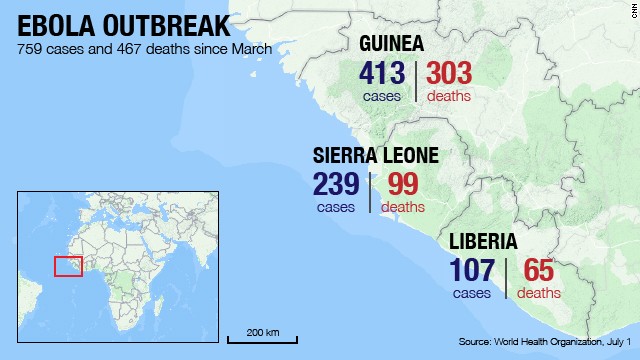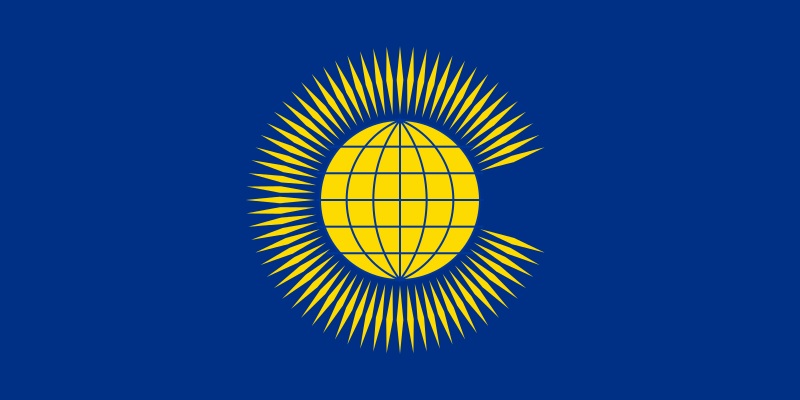
The largest Ebola outbreak since the discovery of the virus in 1976 is currently occurring in Western Africa. So far this outbreak has spread to 390 people in Guinea, 158 in Sierra Leone, and 58 in Liberia. Collectively, 338 of these patients have died from the disease, and this number continues to grow. The spread of the Ebola virus in this region has quickly outpaced any previous outbreaks, the worst of which occurred in Uganda from 2000-01, where 425 cases were reported with a fatality rate of 53%.
On March 21, the Guinea Ministry of Health reported an illness among 49 individuals characterized by flu-like symptoms. Ebola was confirmed in these patients by specimens given to a laboratory in France. By March 30, the disease had been reported in neighbouring Liberia, and Sierra Leone in May. In late April it appeared that the outbreak was slowing, but it had a resurgence in late May.
Ebola is an aggressive viral disease with symptoms that mimic the flu, making misdiagnoses common. The symptoms, such as nausea, fever, headaches, and muscle pain can occur 2-21 days after being exposed to the virus. Some outbreaks have reached a fatality rate of up to 90%.
Outbreaks occur when the virus has been introduced to human beings through contact with the blood or secretions of animals in Africa such as infected fruit bats, monkeys, or forest antelopes. Once infected, human to human transmission occurs through contact with blood or other bodily fluids. People who have recovered from the disease can still transmit the virus for up to 7 weeks after recovery.
Ebola is classified as a Risk Group 4 Pathogen, which requires research of the virus be done in a Biosafety Level 4 laboratory to prevent exposure to researchers and the environment surrounding the facility. This is the highest level of protection, and only a handful of facilities worldwide meet the criteria. Unfortunately, this means research of the disease is very limited.
No vaccines, treatments, or drug therapies are available for Ebola. Supportive care can be provided to sick patients, but the only way to reduce human infection and death from the disease is to raise awareness of symptoms and infection control methods.

This is the first time that Ebola has broken out in West Africa, and a lack of understanding of the disease is contributing to suspicion of health care facilities. Also, traditional funerals are still heavily practiced, where the body is laid out for an extended period of time and mourners often physically touch the deceased. This puts attendees at great risk of contracting and spreading the virus. The general lack of knowledge and mistrust of western medicine has contributed highly to this outbreak.
To combat the spread of the disease, the WHO recommends that educational public health messages should focus on reducing contact with infected animals, not eating raw meat, avoiding direct or close contact with ebola patients, and informing the public about the importance of prompt burial of the dead.
Médecins Sans Frontières (MSF) has stated that the situation in Western Africa is “out of control”, and that the organization has reached its limits in its ability to help fight the spread of disease. The Global Outbreak Alert and Response Network is requesting additional support to help prevent transmission. Regional and International cooperation is required to coordinate infection control measures. No current trade or travel restrictions are recommended for the affected countries at this time.




